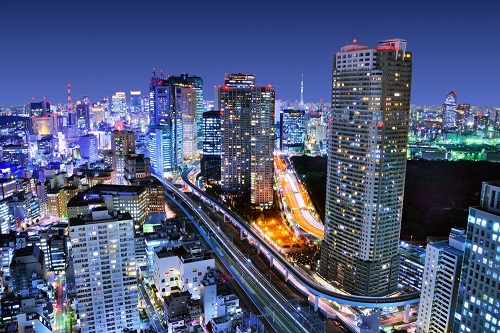Japan is one of the world’s major tourist destinations, and it is also an appealing employment destination to some expats. Visiting the country from most Western nations is usually straightforward, but you will find some additional regulatory requirements if you want to work there.
Will I need a visa?
Whether or not you will need a visa depends on your nationality, the proposed length of your stay and your reason for visiting Japan. There are 68 countries whose citizens can enter visa-free for tourism or business. In general, if you come from one of these nations, which include the UK and the USA, you will have a grace period during which you will not need a visa. But if you plan to take up employment, you will need a work permit.
Tourists can also apply for a double-entry visa for two short trips within a six-month period.
Some nationalities need a transit visa to stop over in Japan on their way to another destination. However, many travellers will not need this, so long as they stay within the allocated zone and do not leave the airport.
How do I apply for an entry visa?
If you have a British passport, you can enter Japan as a visitor for up to 90 days without a visa. You may need to provide evidence of a return or onward ticket. Your passport should be valid for the proposed duration of your stay. No additional period of validity beyond this is required.
If you are a US citizen, you will need a valid passport and an onward/return ticket for tourist/business visa-free stays of up to 90 days. Your passport must be valid for the entire time you are staying in Japan. US citizens cannot work on a 90-day visa-free entry. As a general rule, visa-free entry status cannot be changed to another visa status, unless you depart and then re-enter Japan with the appropriate visa.
If you are planning on spending a longer time in Japan, for example for recreational or cultural reasons, you can apply for a long term visa, which is applicable for six months. This can be extended to a year once you are in the country. This visa has strict financial regulations. To apply, you will need to be 18 years or older and have savings equivalent to more than 30 million Japanese yen (US$273K). You will also need to submit:
• Your passport
• Your visa application form (with a photo)
• An original certificate of eligibility and a duplicate copy
If you submit a certificate of eligibility, you do not need to submit the documents below.
• Schedule of stay
• Documents, such as a bankbook, to prove that your savings are more than 30 million Japanese yen (US$273K), along with records indicating the current balance as well as deposits and withdrawals for the past six months
• Documents to prove that you hold private medical travel insurance
If you apply from outside of your own country, you will also need to submit documents to prove that you legally reside or work in the country you are applying from.

The Japanese embassy in London says that it takes at least a week to process a visa application. You can either attend the embassy in person or use a registered visa agent to apply for a visa, unless the application is for a student visa, a working holiday visa, or a spouse or child of Japanese national visa.
The Japanese government has plans to establish an e-visa from 2020, which is intended to streamline the visa application process.
How much does it cost?
The fees are about 3,000 yen (US$27) for a single-entry visa, 6,000 yen (US$55) for a double-entry or multiple-entry visa, and 700 yen (US$6) for a transit visa. Fees are collected in the currency of the country (region) in which the embassy / consulate general is located.
What will I need to apply for a work visa?
You will need a work visa if you want to take up employment in Japan, but this is obtainable if you have an offer of a job. Working holiday visas are available, but not for US citizens and not if you are seeking work employment in bars, nightclubs, or gambling establishments.
It is not legal to work without a visa if you are outside the permitted categories – for example, if you are not married to a Japanese national, or if you do not have permanent residency. You can be deported and your employer may be fined.
There are currently two kinds of working visa: the specified skills visa 1- SSV1 and the specified skills visa 2- SSV2.
The SSV1 is for a period of five years and will allow for limited renewals. Note that you will not be allowed to bring family members with you on this visa.
Beginning in 2021, the SSV2 will allow you to bring family members with you, and can be renewed indefinitely.

If you are applying for a work visa, you will need:
• A passport
• A completed visa application form
• An up-to-date police clearance record
• Your CV/resume
• One photo
You will also need a certificate of eligibility, which is proof that you fulfil all the requirements of the job. Your employer will need to complete this on your behalf, but you will need to take it to the local department of immigration. To apply for a certificate of eligibility, you will need:
• One passport photo
• A signed work contract
• A copy of your qualifications
• The address of your nearest Japanese embassy or consulate general
• Dates of your previous visit to Japan (if applicable)
If you have lived in Japan for over 10 years, you may apply for permanent residency (eijyuken; 永住権), and this will mean that you are able to work without a work permit.
There is also a temporary business visa for stays of up to 90 days, which can be a single-entry visa, or a double-entry visa, if both trips are within a six-month period. Business purposes include conferences, meetings, signing contracts, and market surveys.
Bringing a pet into Japan
You can bring your pet into Japan with minimal quarantine, but the animal must be microchipped and have had a rabies test.

